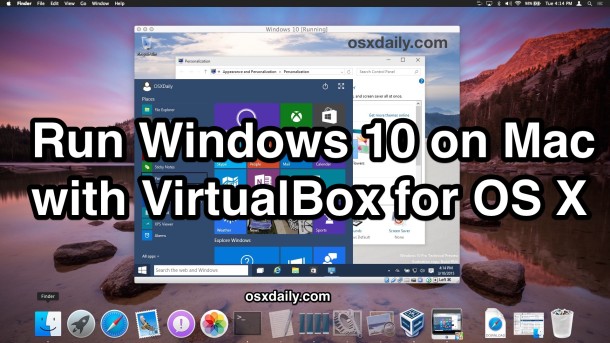
From this page we can download a virtual hard disk VMDK with macOS already installed and ready so that, when it starts, it starts the initial configuration of the system. To save time and simplify the process a lot, we recommend you download the latest version of macOS 10.14 “Mojave” from the following link. And this is a problem if we don’t have a Mac. The only way to make it work is to create it ourselves. Although many macOS ISO images circulate on the network, many are outdated, and others do not work. And to generate this ISO image we need to use macOS.
How to use mac os on windows 10 install#
And in order to install macOS in VMware we need an ISO image. This is where one of the problems begins to be able to install macOS from Windows, a vicious circle that is repeated over and over again. Therefore, we will use the entire VMware process. In order to install and run the Apple operating system in a virtual machine, we must patch both VMware and VirtualBox. And it is advisable to have an SSD so that the performance is excellent. In addition, of course, it is necessary to have at least 8 GB of RAM (recommended 16 GB), a high-end processor with several cores and threads (with AMD Ryzen we have not managed to operate this virtual machine, only with Intel).

And in the newer ones we may not be able to apply the patch that we are going to see next. Older versions may cause problems installing macOS. The first thing we need is to have VMware Workstation 15.5 (or 15.5.1) installed on our computer. But we are going to do it on Windows 10 (specifically the latest version of the operating system), and using VMware Workstation Pro, since we have been able to verify that it is the one that best (and easiest) makes macOS work. This process can be performed on virtually any operating system, with any hardware and with any virtual machine hypervisor. Upgrade to macOS “Catalina” from Windows 10, or install the latest versions of macOS Requirements and preparation.




 0 kommentar(er)
0 kommentar(er)
